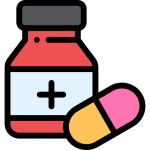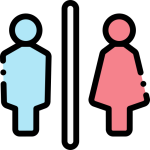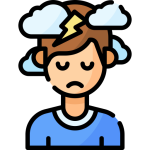Dealing with Post-Stroke Depression
Having a stroke is a life changing event. Many stroke survivors feel a loss of identity, which can lead to distressing feelings about themselves and their future.
After a stroke many parts of an individual’s life can be impacted. A stroke can impact a person’s relationships, their ability to work, their household roles, their finances, and/or their ability to participate in activities.
Due to these changes, many stroke survivors will experience stress, anxiety and depression. One in three people experience depression at some point during the first five years after their stroke.
It is important for caregivers of stroke survivors keep a look out for any signs of depression exhibited by their loved one. Here are some of the common symptoms of depression.
Common Post-Stroke Depression Symptoms
- Persistent sad, anxious or “empty” mood
- Restlessness and irritability
- Feelings of hopelessness, pessimism, guilt, worthlessness or helplessness
- Loss of interest or pleasure in hobbies and activities, including sex
- Decreased energy and fatigue, and feeling “slowed down”
- Difficulty concentrating, remembering and making decisions
- Insomnia, early-morning awakening or oversleeping
- Appetite and/or weight changes
- Thoughts of death or suicide, or suicide attempts
In addition to affecting a person’s mood, depression can also make the rehabilitation process more challenging. If five or more of these symptoms persist for longer than two weeks, it is recommended that you find a good psychologist or psychiatrist for your loved one. In addition to improving the survivor’s mood, treating depression can boost physical, cognitive, and intellectual recovery.
It is important to note that partners, caregiver, and family members of stroke survivors can experience depression and anxiety as well. If you notice any of these symptoms in yourself, it is recommended that you too seek help.
Click on the tiles below for some tips for caregivers who care for stroke and aphasia survivors.
Medications

Modifying Your Home

Managing Incontinence

Nutrition and
Meal Plans

Dealing With Post-Stroke Depression

Caring For Someone Who Can't Speak After A Stroke

